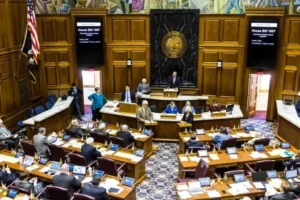Indian tax officials have accused Kia Motors of $155 million in customs duties by misclassifying imported car parts. The confidential notice sent in April last year claims Kia imported components separately to pay lower taxes instead of declaring them as a single shipment.
Kia India responded to the notice with a detailed rebuttal, arguing that its practices comply with regulations. The company, which has sold over a million cars since launching in India in 2019, has not shared additional details on its legal position.
The finance ministry has not commented on Kia’s Indian tax dispute. The allegations stem from Kia’s imports for its Carnival model, which authorities claim were structured to reduce tax liability. This case follows a similar dispute last year with Skoda Auto Volkswagen India receiving a $1.4 billion tax demand.
Volkswagen has since challenged the claim in the Bombay High Court due to concerns over India’s tax policies. Foreign investors watch these cases closely as unresolved tax disputes contribute to uncertainty.
HSBC Securities reports that net foreign direct investment in India has dropped by half over the past year, partly due to regulatory unpredictability. Tax expert Dinesh Kanabar highlighted the slow resolution process, often forcing companies to make partial payments before making final decisions.
India has faced several high-profile tax battles with global firms. Vodafone successfully contested a $2 billion tax demand linked to its 2007 Hutchison acquisition, and Cairn Energy won an international ruling after a $1.4 billion dispute with the Indian authorities. The Kia’s Indian tax dispute raises concerns about India’s investment climate, emphasizing the need for more transparent regulations and faster tax case resolution










